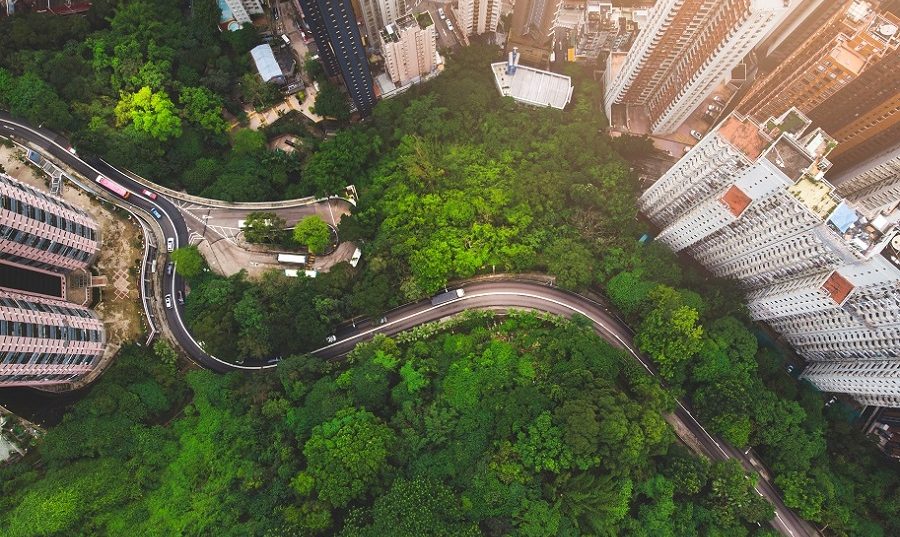DWIH Focus Topic 2020: Cities and Climate
 © Kiyoshi Hijiki_Getty Images
© Kiyoshi Hijiki_Getty Images
In 2020, the German Centres for Research and Innovation (DWIH) will be engaging intensively with their annual focus topic of “Cities and Climate”. Located in five of the world’s leading cities, they serve as exceptional platforms for such engagement.
The world’s major cities have an especially important role to play in view of climate change and the need for sustainable development. They highlight the opportunities and risks of growth: resource consumption versus innovative technologies, economic pressure versus outstanding economic achievements. Thanks to their intellectual and creative potential, cities are also key actors in the battle against climate change.
Annual focus topic of the global DWIH network
For 2020, the Board of Trustees of the DWIH network has selected “Cities and Climate” as the overarching annual focus topic for the five DWIH in New York, São Paulo, Moscow, New Delhi and Tokyo. Together with its supporters, each DWIH will organise events relating to this theme and, by providing relevant information and dialogue opportunities, will create scope for follow-up activities.
Cities and Climate is the DWIH network’s annual focus topic
Further information about the selection of the DWIH focus topic for 2020 can be found on the website of the DWIH network.
Transformation for urban growth
It is expected that 40 percent of India’s population will be living in conurbations by 2030. The growth of the population is putting pressure on the country’s major cities: while the capital New Delhi is regularly engulfed in a toxic smog, coastal cities such as Mumbai are hit by ever more severe flooding as sea levels rise. Global warming and unpredictable monsoons call for new ideas, as do air pollution and an inadequate energy supply. To address these issues, the Indian government is seeking to bring about a transformation: by 2030, at least 40 percent of India’s electricity is to be generated by renewable energies. Furthermore, measures to develop the country like the “Smart Cities Mission” have been launched in India; its goal is to promote sustainable cities that offer a high quality of life.
Longstanding German-Indian dialogue
New structures are necessary to allow India to better leverage its huge potential, for example in the area of solar power. India’s Ministry of New and Renewable Energy is cooperating with Germany on the “Green Energy Corridors” (IGEN-GEC) project with a view to meeting the challenges involved in incorporating large amounts of renewable energies into the grid. Within the German-Indian dialogue, development of the cities of the future is based on a broad foundation. The southern Indian metropolis of Kochi for example is part of the “Global Smart City Initiative” coordinated by the Fraunhofer-Gesellschaft. Its research is aimed at reducing greenhouse gases, increasing resilience to the consequences of climate change, and improving the quality of life for city-dwellers.
India and Germany have been cooperating in the area of development for more than 60 years – in sectors such as energy, sustainable and climate-friendly urban development and transport, the environment, and sustainable agriculture. During the 5th German-Indian government consultations on 1 November 2019 in New Delhi, the new Joint Declaration of Intent on the Indo-German Partnership on Green Urban Mobility was signed. This will see Germany provide a billion euros in funding to help improve green urban mobility infrastructure and services in Indian cities.
Promoting sustainable urbanisation, including integrated policies and measures to improve resource efficiency, adapt to climate change and reduce the environmental burden posed by cities, is therefore right at the top of the political agenda.
